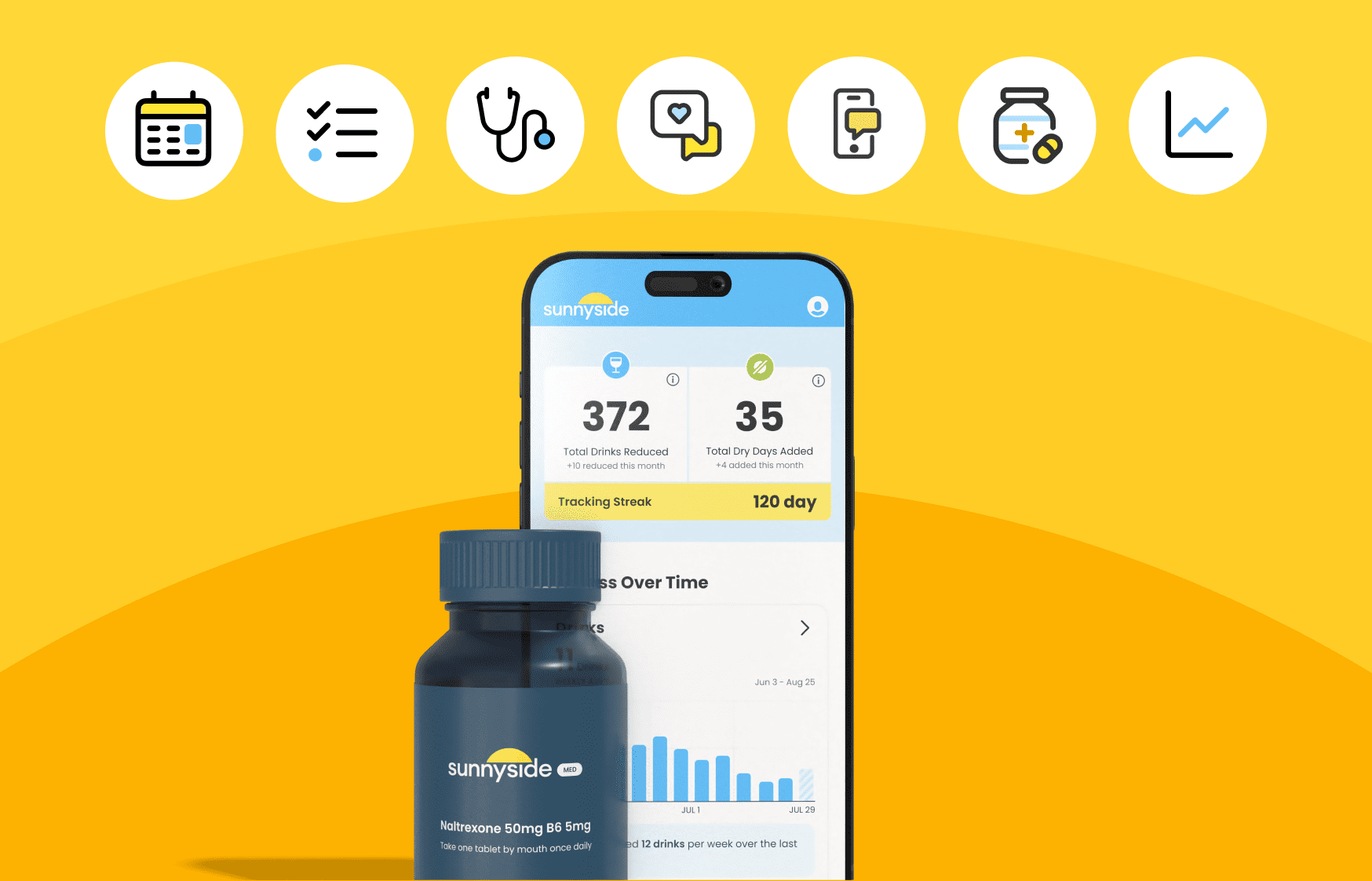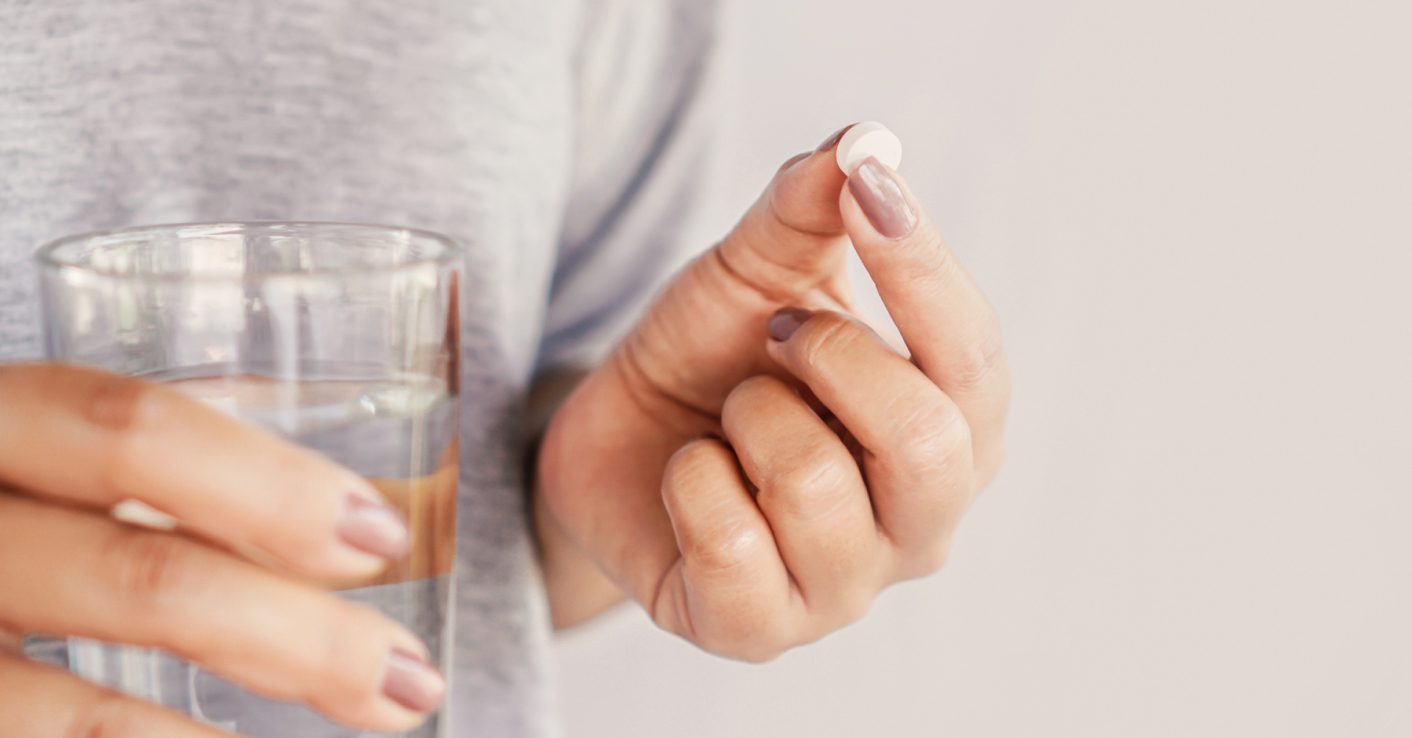Last Updated on May 14, 2025
Cutting back on alcohol is more than just a behavioral change. It’s a total mindset shift. And if you’ve ever tried to reduce your drinking, you know that self-talk matters just as much as how many drinks you record.
When you build mental resilience, you choose positive thoughts over self-doubt, focus on growth, and develop habits that bolster your long-term goals.
Watch The Related Podcast
Why Mindset Matters When You’re Drinking Less
Many of our daily behaviors are habitual. This means we operate largely on autopilot, which makes changing alcohol habits especially challenging. Our brains are wired to stick to routines to conserve energy, even when those routines aren’t helping us.
Mindset can make a difference here. Our thoughts and beliefs can either reinforce old patterns or pave the way for new ones. If you constantly think “I’m not strong enough to do this” or “this is going to be too hard,” your brain treats those thoughts like instructions, and they’ll appear in your behavior.
But you can rewrite that script.
The Power of Positive Self-Talk
One way to shift your habits is to shift your language first. Dr. Andrew Newberg, a neuroscientist at Thomas Jefferson University, found that positive self-talk can actually change your brain’s gene expression, boosting areas related to emotional regulation.
In other words, how you talk to yourself physically affects your brain’s ability to handle stress and form new habits.
Give it a try. Start replacing self-limiting thoughts like “I can’t handle this” with empowering ones like “I’m learning how to handle this.” Not a huge reframe linguistically, right? But one that can make a huge difference.
Growth Mindset = Stronger Habits
Psychologist Carol Dweck’s research on the “growth mindset” found that people who believe their abilities are expandable are more likely to succeed. This is crucial when you’re adjusting your relationship with alcohol. A growth mindset frames setbacks as normal parts of the process. Not signs of a catastrophe.
Instead of thinking:
- “I failed because I drank on Friday,”
Try: - “I learned something about my triggers this Friday.”
When you view challenges as opportunities for growth, resilience becomes your default response, not discouragement.
Affirmations Activate Your Brain’s Reward System
Another science-backed strategy? Positive affirmations. Self-affirmation activates the brain’s reward system, helping to reduce stress and improve well-being.
Why does this matter? Stress is one of the top reasons people reach for alcohol. If you’re making a new habit loop, one based on self-trust and affirmation rather than guilt, you’re likelier to make choices aligned with your goals.
This is why encouragement, reminders, and positive reinforcement are so effective. They tap into the same reward circuitry that alcohol often hijacks.
Zoom in On What You’re Gaining, Not What You’re Losing
Too often, people associate cutting back on alcohol with loss: no more happy hours, fewer nights out, missing the “fun.” But what if you reframed it?
Instead of seeing this change as a restriction, consider it an upgrade. You’re gaining:
- Better sleep
- Improved mood
- Clearer skin
- Stronger relationships
- More energy and time
- Financial savings
- Deeper self-respect
The next time your brain whispers, “This is hard,” counter with “This is worth it.” Over time, those reframes become your new normal.
An Exercise to Strengthen Your Resolve
Want a practical way to build mental resilience today? Try this:
- Draw a line down the middle of a page.
- On the left, list everything you gain by reducing or taking a break from alcohol (e.g., waking up clear-headed, feeling proud of yourself, connecting deeply with friends).
- On the right, write down the things you feel you’re “missing” by cutting back (e.g., drinking at parties, having a particular kind of social experience).
Then ask yourself: Which column reflects the life you want to create?
Most people find that the “gains” column is overwhelmingly more meaningful, especially once they see it in writing.
Final Thought: You Get to Do This
When it comes to cutting back on alcohol, mindset is everything. Don’t tell yourself, “I have to do this.” Say, “I get to do this.” You’re choosing growth. You’re choosing clarity. And you’re building a version of yourself that doesn’t rely on alcohol to feel whole.
Get started on that project with a 15-day free trial of Sunnyside.

What is Sunnyside?
Sunnyside is a mindful drinking and alcohol moderation app that can help change your habits around alcohol using a proven, science-backed method. Whether you want to become a more mindful drinker, drink less, or eventually quit drinking, Sunnyside can help you reach your goals. We take a positive, friendly approach to habit change, so you never feel judged or pressured to quit.
When you join Sunnyside, you’ll start by completing a 3-minute private assessment so we can learn a bit about you. Once that’s done, you’ll get a 15-day free trial to test out everything, including our daily habit change tools, tracking and analytics, community and coaching, and education and resources. It’s a full package designed specifically to adapt to your goals, and help you reach them gradually, so you can make a huge impact on your health and wellbeing.
Sunnyside is a digital habit and behavior-change program that is incredibly effective on its own, but can also be the perfect complement to other work you’re doing to cut down on drinking, whether that includes talk therapy or medication such as Naltrexone.
Get your 15-day free trial of Sunnyside today, and start living your healthiest life.



